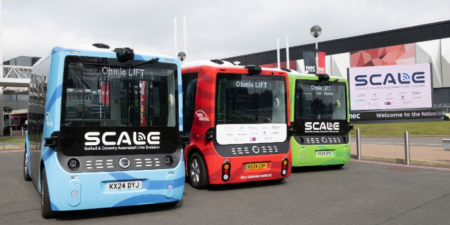The South Australian state government has announced seven projects that have claimed a share of its A$10m (US$7.6m) Future Mobility Lab Fund to drive the local development of autonomous vehicle technology.
The Future Mobility Lab Fund was announced in November 2016 to boost local testing, research and development of connected and autonomous vehicle technologies. In all, the state government received 42 applications for grants worth more than A$26m (US$19.8m), and the seven successful projects will share in A$5.6m (US$4.3m) from the first round of funding, with other projects to be announced soon.
The winning projects include:
Adelaide Airport will receive A$1m (US$764,000) from the fund as part of a A$2.8m (US$2.1m) project to trial three electric driverless shuttles operating between the long-term parking lot and the terminal. If the trial is successful, the driverless shuttles will be become a permanent part of its operations;
Leading UK-based driverless car supplier RDM Group will also receive A$1m toward a A$1.8m (US$1.3m) driverless cargo pod trial, transporting goods at the Tonsley innovation district in Adelaide, with the aim of developing a market-ready autonomous delivery pod within a year. The project will involve pods similar to RDM’s Pod Zero that was launched in 2016, which will be modified to carry global standard air freight containers. The company opened its Asia-Pacific headquarters at the Tonsley Business Precinct in January;
Another A$1m will go to Flinders University in Adelaide, which will collaborate with the RAA on a three-year A$4m (US$3m) driverless shuttle project. Initially the vehicle will shuttle students around the Tonsley campus, with future plans to extend to the Bedford Park campus and local public transport hubs. Students will collaborate on the project with the long-term goal of developing driverless transportation as far as to the Westfield Marion shopping complex.
Announcing the new funding, South Australia’s Minister for Transport and Infrastructure, Stephen Mullighan (right), said, “We have been focused on fostering the development of an autonomous technology industry in South Australia to claim a share of an industry predicted to be worth A$90bn globally by 2030.
“Our Australian-first driverless car trials, our Australian-first law changes to allow for on road trials, and our international Driverless Car Conference, sent a message that we are the place to do business when it comes to autonomous vehicle technology. The success of those efforts is more than apparent in the overwhelming interest generated by the Future Mobility Lab Fund, with applications for more than twice the value of the fund from 42 proposed projects.”
Adelaide Airport’s managing director, Mark Young, commented, “This will be a flagship project that, following a full feasibility study, has the potential to substantially improve customer service to match the expectations of visitors and travelers to our modern gateway airport.
“A small fleet of autonomous electric vehicles would replace our current diesel powered shuttle buses, servicing our long-term and staff car parks. Their compact size and agility will enable them to operate on a dedicated path at an increased frequency, potentially operating 24 hours a day, reducing road congestion and significantly lowering carbon emissions.”




